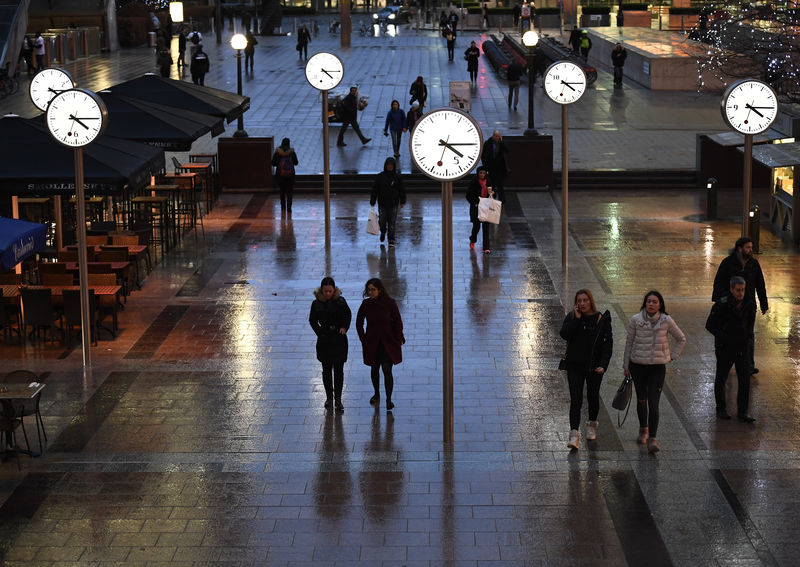LONDON (Reuters) - British businesses are increasingly cautious about their investment plans as they worry about how the country's planned departure from the European Union will affect the economy this year, a survey showed on Tuesday.
Business confidence in December remained at its second-highest level since Britain voted to leave the EU in June, polling firm YouGov and the Centre for Economic and Business Research (CEBR), a think tank, said.
But the survey of 500 executives also showed expectations for investment softened after an increase in November.
The proportion of business decision-makers expecting investments to increase over the next 12 months fell to 29 percent from 31 percent in November, it showed.
"While these latest figures suggest that, for the moment at least, British businesses are weathering the immediate post-Brexit referendum storm, they are still hesitant," Scott Corfe, CEBR director, said.
"Although the majority of companies are optimistic about their own prospects and domestic sales over the coming 12 months, they are cautious about making big investments at the moment," he said.
Business confidence slumped in July in the weeks after the vote. It fell too in October when Prime Minister Theresa May said she would begin Brexit negotiations by the end of March and suggested she would take a tough approach in the talks.
The Bank of England has identified a fall in business investment as one of the potential big drags on the British economy following June's Brexit vote.
Separately on Tuesday, jobs advertising firm REED said the 110,000 new jobs posted on its website so far in 2017 represented a 16 percent rise from the same period in 2016.
But jobs in the training sector fell by more than 54 percent and apprenticeships were down by 26.5 percent.
"Although we must acknowledge the uncertainty in markets caused by Brexit, these areas are where the future of our economy lies, and should not be ignored," James Reed, chairman of reed.co.uk, said.

Britain's labor market has so far largely weathered the Brexit shock. Economists polled by Reuters expect official data due on Wednesday will show the unemployment rate remained at an 11-year low of 4.8 percent in the three months to November.